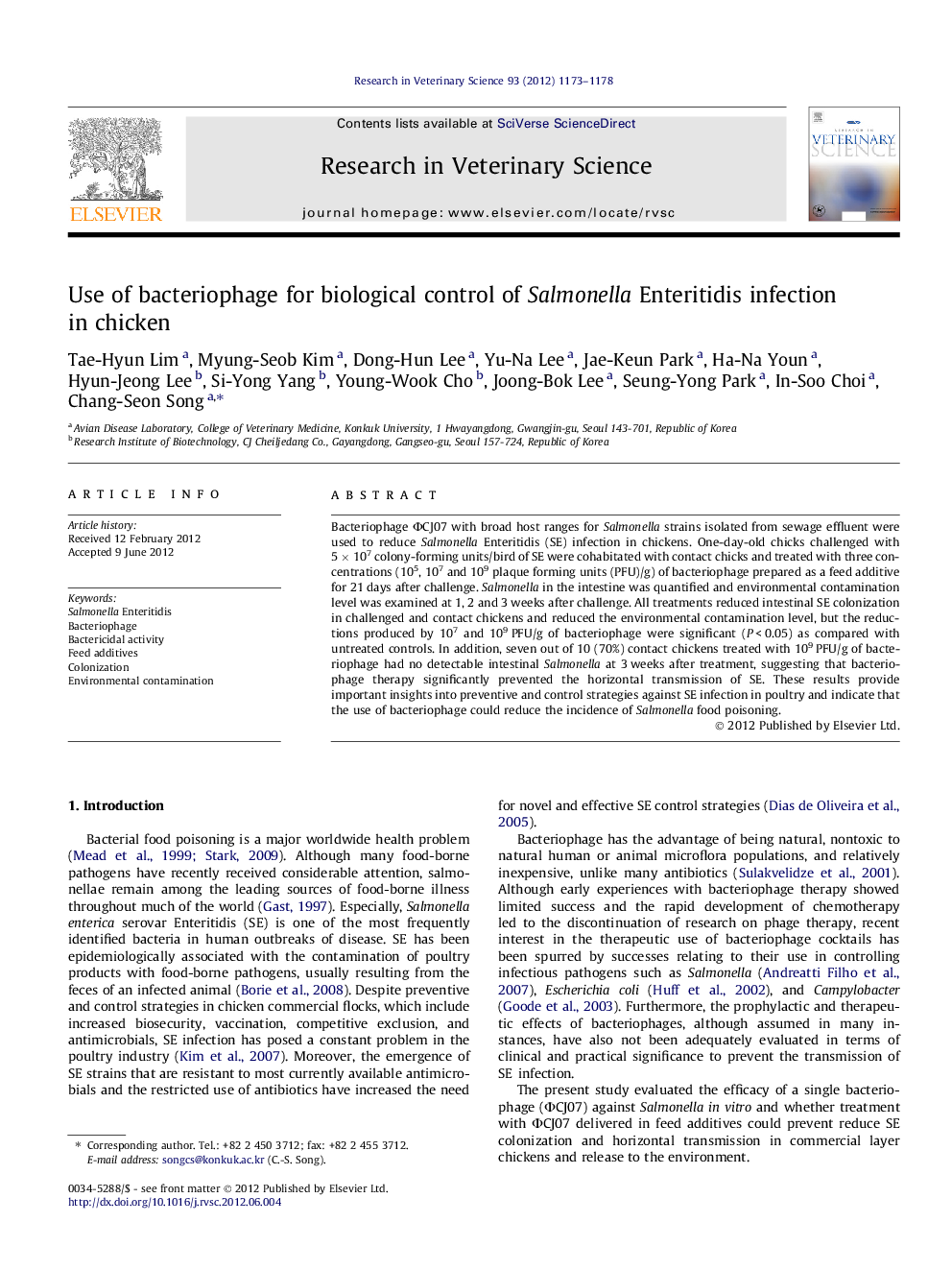| کد مقاله | کد نشریه | سال انتشار | مقاله انگلیسی | نسخه تمام متن |
|---|---|---|---|---|
| 2455173 | 1110507 | 2012 | 6 صفحه PDF | دانلود رایگان |

Bacteriophage ΦCJ07 with broad host ranges for Salmonella strains isolated from sewage effluent were used to reduce Salmonella Enteritidis (SE) infection in chickens. One-day-old chicks challenged with 5 × 107 colony-forming units/bird of SE were cohabitated with contact chicks and treated with three concentrations (105, 107 and 109 plaque forming units (PFU)/g) of bacteriophage prepared as a feed additive for 21 days after challenge. Salmonella in the intestine was quantified and environmental contamination level was examined at 1, 2 and 3 weeks after challenge. All treatments reduced intestinal SE colonization in challenged and contact chickens and reduced the environmental contamination level, but the reductions produced by 107 and 109 PFU/g of bacteriophage were significant (P < 0.05) as compared with untreated controls. In addition, seven out of 10 (70%) contact chickens treated with 109 PFU/g of bacteriophage had no detectable intestinal Salmonella at 3 weeks after treatment, suggesting that bacteriophage therapy significantly prevented the horizontal transmission of SE. These results provide important insights into preventive and control strategies against SE infection in poultry and indicate that the use of bacteriophage could reduce the incidence of Salmonella food poisoning.
Journal: Research in Veterinary Science - Volume 93, Issue 3, December 2012, Pages 1173–1178